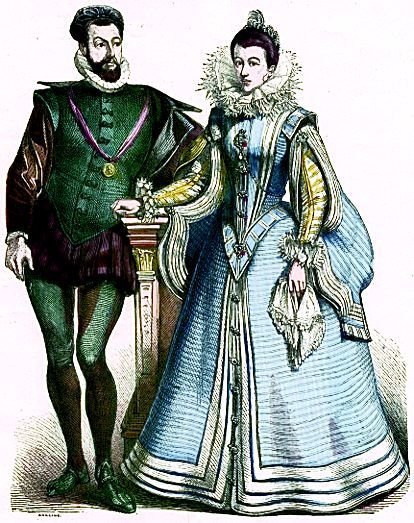STANDING UP IN COURT

In the dreaded French impotence trials, performance anxiety took on new meaning.
ink the Spanish Inquisition was harsh? Just as intimidating to many men were the French impotence courts of the 16th and 17th centuries, when husbands charged with erectile dysfunction were obliged to prove their virility before witnesses.
A husband’s inability to perform was one of the few reasons that the Church would allow a marriage to be annulled, so disgruntled women who could afford the legal costs would regularly charge their husbands with “injurious non-consummation” before ecclesiastical courts. The legal tradition dated to the 1300s, when theologians agreed that the true aim of matrimony was procreation. Statistics are vague, but by the 1500s, says French historian Pierre Darmon in his detailed account Damning the Innocent, courts were faced with “a tidal wave of accusations.” The onus was placed on the husband to demonstrate his powers of erection before an expert team of priests, surgeons, and midwives.
These learned observers would carefully examine his equipment to reach an opinion on its “elastic tension” and “natural motion,” before demanding “proof of ejaculation.” Many men found that their powers would fade on first examination. “Just looking at you makes me shrivel,” one humiliated husband moaned to his tormentors.
Any man who failed this test had only one recourse to avoid becoming a laughing-stock. He could demand Trial by Congress, wherein he would carry out his conjugal duty before the team of experts as 100 percent proof that he could perform. As recounted by a string of contemporary accounts, this astonishing piece of legal pornography would take place in a neutral territory agreed upon by both parties. The married couple were examined by the court to make sure they were not concealing any devices — men were known to smuggle tiny vials of blood onto the scene, which would fool observers into thinking that the wife’s maidenhead had been taken without actual penetration — then ordered to the conjugal bed.
The male surgeons and priests repaired behind a partition to enjoy discreet observation, while the female midwives perched by the pillows watching every move like hawks. With the husband and wife long estranged, the wrestling beneath the sheets was far from amiable: There was bickering and harsh words, with one wife crying that her husband had “put his finger theirin (to) dilate and open her by such means alone.” One critic of the trials noted that it would take only a “marvelous determined man and even brutish not to turn flaccid.” After one or two hours, the experts approached the battle scene with candles to establish whether or not there had been penetration and suitable “emissions.” One defeated husband, a certain Monsieur De Bray, although his member had been declared by the doctors “big, stiff, red and long … in place and in good order,” lost his case as he had only scattered “aqueous” seed upon the mattress.
The women who had the funds to start impotence trials were almost all from the aristocracy, so it is not surprising that each new charge provoked a salacious scandal that was disseminated by Parisian pamphleteers – the predecessors of the modern tabloid press – to a bemused wider audience. By the mid-17th century, a carnival atmosphere was attending the trials, as shown by the case of the handsome young nobleman René de Cordouan, the Marquis De Langey, recorded in detail by the contemporary chronicler of Parisian life, Tallemant des Réaux. Accused of impotence by his wife of four years in 1657, the Marquis appeared to have an open-and-shut case when the first examination suggested that his wife was not a virgin. But there was lingering doubt and innuendo, so the Marquis decided to restore his sullied reputation through Trial by Congress.
In Paris, bets were laid on the outcome of the trial and dirty songs composed. Society ladies flirted with the Marquis, with a certain Madame d’Olonne declaring openly, “I would so like to be condemned to Trial by Congress.” When the feuding couple appeared at the site, a luxurious bath house, servants had to force a path through the crowd of curiosity-seekers. The mob’s sympathy was squarely with the dashing De Langey, who was thought to have been falsely accused by a harridan. The wife was loudly booed while the Marquis strutted arrogantly before his admirers (“for all the world as if he were already in”). As he slipped beneath the sheets with his wife, De Langey jauntily yelled to the doctors: “Bring me two fresh eggs, that I may get her a son at the first shot.” But disaster struck. The Marquis was heard by the doctors to be grunting, cursing, and finally praying. After two hours De Langey gave up, crying, “I am ruined.”
Shock waves rippled through the crowd outside and the female admiration for De Langey turned to scorn. His request for a retrial was denied, and in France his name became a byword for flaccidity. The Marquis retired to the provinces, where he married again – and sired seven children. When De Langey boasted of this to a former enemy, the man archly replied: “But sir, nobody has ever had any doubts about your wife.” •
Оставить комментарий
Для комментирования необходимо войти через ![]() Вконтакте
Вконтакте
